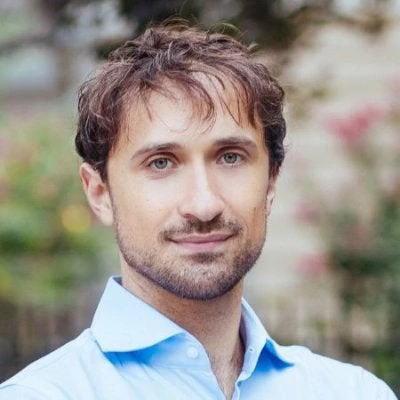 Shallow Well Next to a Private Toilet and Pig Enclosure. © Stephane Dahan/World Bank
Shallow Well Next to a Private Toilet and Pig Enclosure. © Stephane Dahan/World Bank
Small Island Developing States (SIDS) are home to vibrant and distinct cultures, incredible diversity and rich heritage. But they are also unique in other, more unfortunate ways. SIDS are uniquely vulnerable to resource scarcity, suffer the impacts of extreme weather disproportionately and their citizens’ livelihoods are deeply linked to the natural environment.
Water is at the heart of these vulnerabilities. Climate change and human pollution can quickly degrade and deplete SIDS’ water resources. And even before rising sea levels threaten coastlines, the salinization of groundwater can make areas uninhabitable. All the while, local capacity to adapt can be limited, with water governance often complicated by traditional social and political structures.
But small islands can also be innovation hubs for water security; creating, testing and refining models that prove resilient and sustainable – and help unlock future water security challenges globally. That’s why the World Bank and the Global Water Security & Sanitation Partnership (GWSP) work in a number of Pacific island countries.
Kiribati is a string of atolls scattered in the central Pacific and its capital South Tarawa has uniquely fragile water resources.
The World Bank is preparing a project with partners to modernize water supply services in the country’s capital city. So GWSP has supported a new study ‘Building Urban Water Resilience in Small Island Countries – The Case of South Tarawa, Kiribati.’ The report finds that despite sophisticated strategies to cope with inadequate water supply and large-scale infrastructure investments, severe deficits remain between how much water is available and how much is needed, and new complexities and vulnerabilities continue to emerge.
It recommends renewed focus on water conservation measures, the improved management, recharge and use of groundwater, greywater reuse and optimized management of rainwater harvesting facilities among a range of nature-based, cost-effective measures.
The Solomon Islands are rapidly urbanizing and the population of Honiara – the capital - is expected to triple in just 30 years.
The World Bank has recently approved a project with partners to improve urban water supply and sanitation services there. Urbanization has led to the widespread development of informal settlements that have so far been largely excluded from water, sanitation and hygiene (WASH) services due to their unique and evolving characteristics. With GWSP support, the Bank has helped the national utility prepare a strategy to expand service delivery into these areas.
Papua New Guinea (PNG) is one of the most diverse countries in the world and also one of the poorest countries in the region, with low levels of access to WASH, that have actually decreased over the past two decades. That’s why the World Bank is financing a project to increase access to WASH and to strengthen the sector’s policies and institutions.
Our work on PNG also highlights the importance of sustained engagement. Back in 2015, PNG adopted its first National WASH Policy, drafted with support from the Water and Sanitation Program (WSP), one of the GWSP’s predecessors. Now in 2019, GWSP is supporting the preparation of a Bill to establish the first national WASH authority that will be in charge of planning, financing and regulating sector development. This experience illustrates how long-term engagement can yield transformative impacts on sector institutions, even in challenging contexts.
That’s not the only way that the GWSP’s legacy informs its work. The GWSP’s other predecessor. the Water Partnership Program (WPP), conducted a knowledge review on water in small islands. Its findings provided the foundations for our work in Kiribati, the Solomon Islands and PNG.
Jennifer Sara, the World Bank’s Global Director for Water, says such knowledge of and commitment to SIDS exemplifies the approach the Bank is taking on water and sanitation issues:
“To achieve the SDGS, we need holistic management of the water cycle across all competing needs. In the Pacific SIDS, this means integrated approaches to water and sanitation, solid waste management, health, and nutrition – all incorporating the principles of climate adaptation. These countries face tremendous challenges and are unique in many ways.
“But solutions exist. Platforms for knowledge exchange and collaboration can play a major role in strengthening the water sector in the Pacific SIDS – and beyond. SIDS can be a source of innovation and inspiration for all countries tackling these crucial issues.”
We know our work today will also help shape our projects of tomorrow. Thanks to GWSP support, we’re able to offer big ideas for small islands.


Join the Conversation